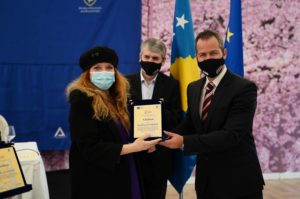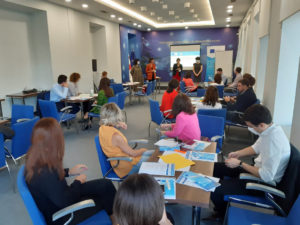
Technical Assistance for Implementation of Civil Society Dialogue and Civil Society Support Programmes (TR2015/DG/01/A5-01/001)
The overall aim of the project is to increase bilateral exchanges and cooperation between CSOs in Turkey and the EU at local, regional and national levels, to promote awareness raising initiatives on importance and benefits of membership of Turkey to the EU within Turkey and EU and on

Visibility and Communication for Actions Related to AA/DCFTA Implementation in the Framework of the EU Funded Assistance Programmes
The National Implementation Plan of the EU-Moldova Association Agreement (AA) establishes key priorities to foster political association and economic integration with the EU, including actions assigned to institutions involved in the AA/DCFTA (Deep and Comprehensive Free Trade Area). The DCFTA defines a preferential, mutually advantageous trade relationship between

EU Support for the Competitiveness of Kosovo’s ICT Sector
This initiative’s overall objective is to enhance the competitiveness of Kosovo’s digital and traditional businesses by supporting the growth of Kosovo’s Information and Communication Technology (ICT) sector, paving the way for growth and new job creation. The project aims to bridge the digital and business skills gap in

Facility for the Implementation of the EU-Georgia Association Agreement- II
The project aims to strengthen the capacity of public institutions in Georgia to meet the country’s commitments under the EU-Georgia Association Agreement (AA), including the Deep and Comprehensive Free Trade Area.

Increasing Competitiveness of Middle Black Sea Region TR83
Turkey’s Middle Black Sea region was set up in 2009 and is now well established; the Middle Black Sea Region Development Agency (OKA) carries out activities to support the economic and social development of Amasya, Çorum, Samsun and Tokat provinces. The main objective of this project was to

Training and Establishing Meal Department (Monitoring, Evaluation, Accountability, And Learning)
The implementation of effective monitoring, evaluation, accountability, and learning (MEAL) are vital to the success of all programs. In this regard, the purpose of the project was to provide accountability to their stakeholders through information sharing and developing complaints or feedback mechanism which can help to guide program

